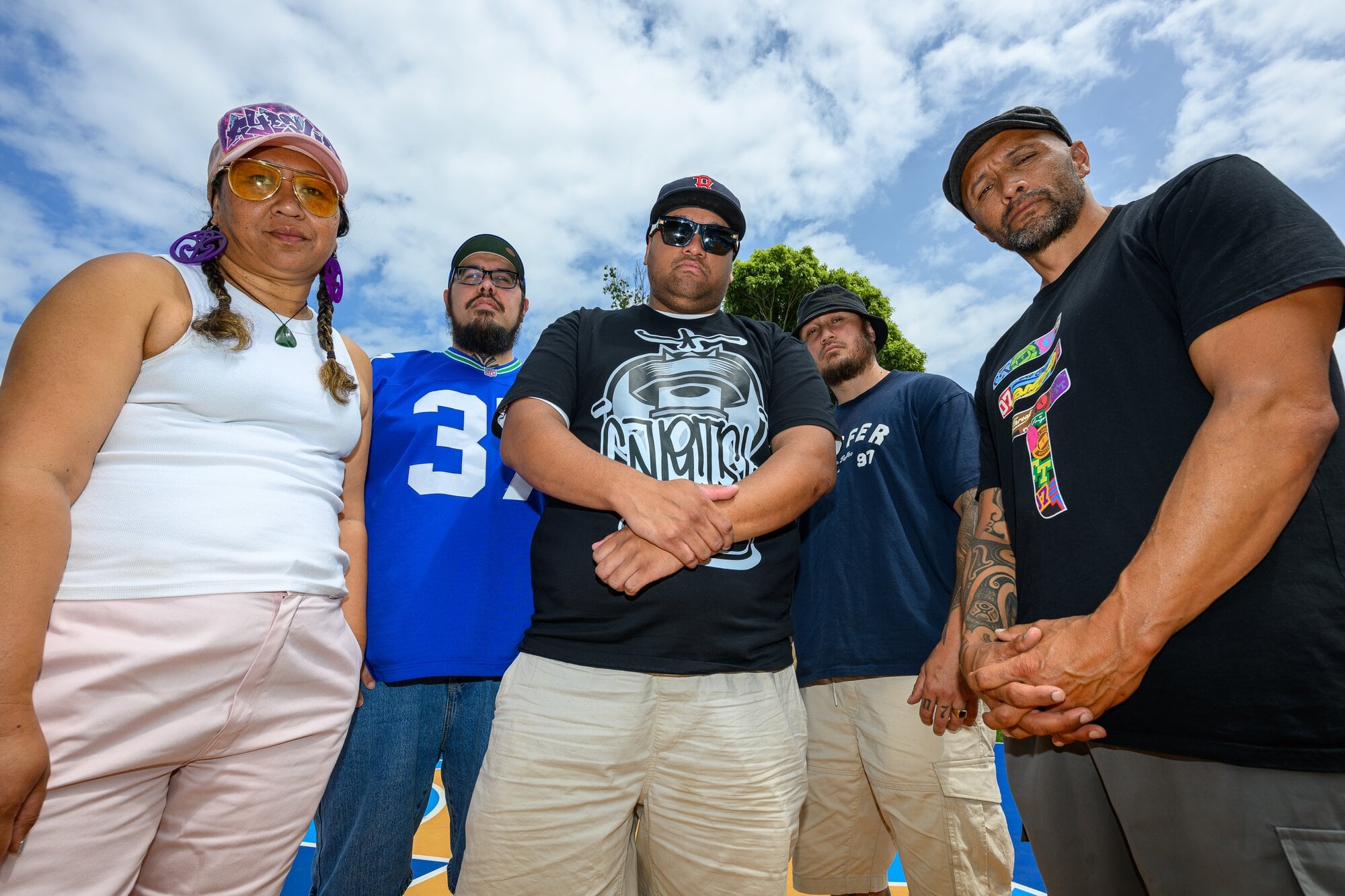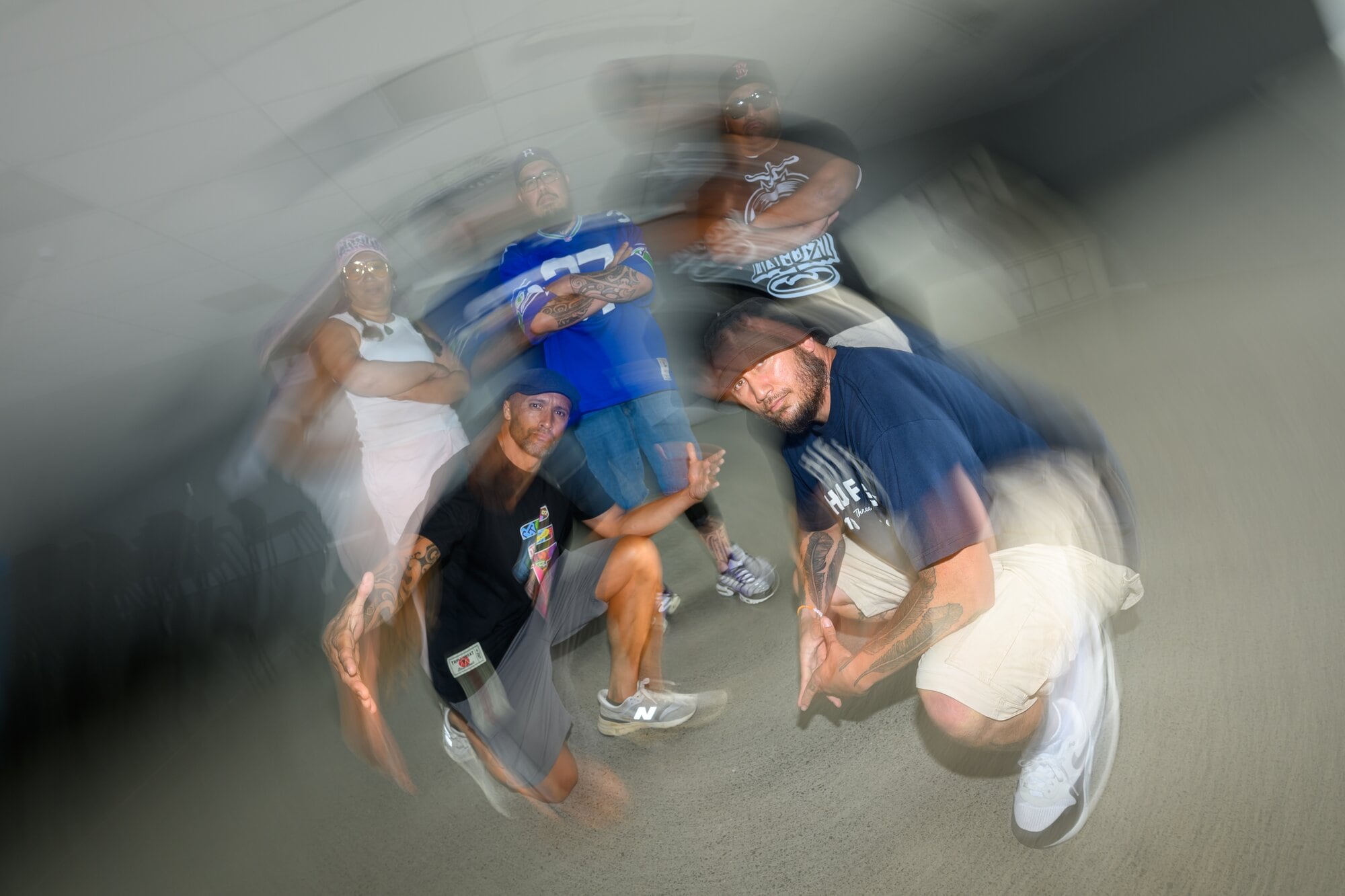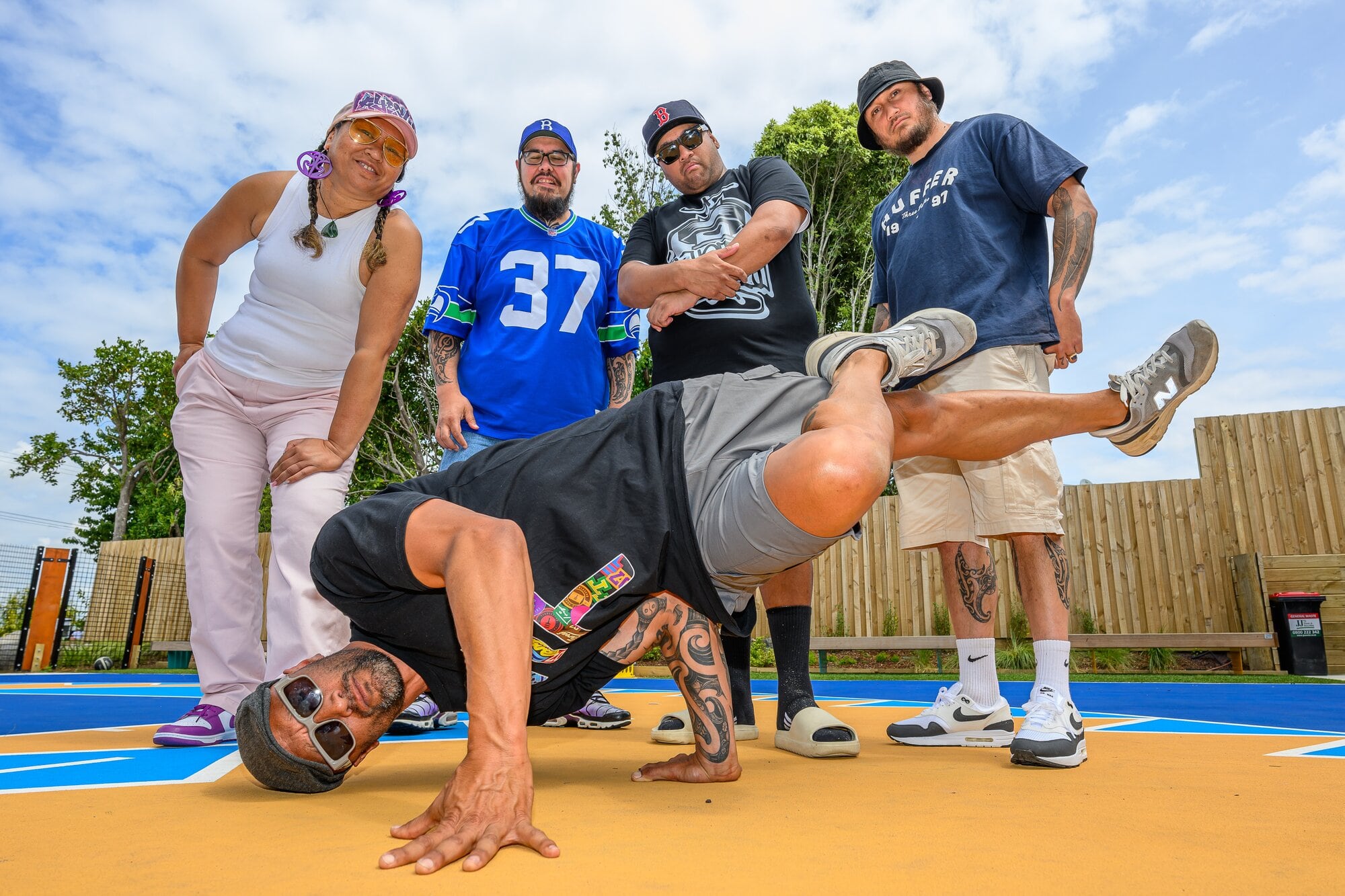Tauranga Women’s Refuge is in the process of piloting a rangatahi programme, called Whakamoeariki, for teen boys focused on creating and strengthening a link between the foundations of hip hop and te ao Māori.
Whakamoeariki programme co-ordinator Lyric Ratahi said the programme was born out of necessity for young tane (males) to be able to learn how to express themselves in a positive way.
“This space is aimed towards our young tane as an early intervention in hopes to be another notch to break the cycle for their whānau.”
Whakamoeariki would be aimed towards men who had been violent previously and wanted to go on a healing journey utilising te ao Māori, pūrākau (legend/story with lesson), mahi toi (art/craft) and whakawhiti kōrero (conversations), Ratahi said.

Whakamoeariki programme facilitators Ayesha Kee, Nick Connal, Grayson Walker, Chris Watene and Leigh Hawera. Photo / David Hall
Ratahi said rangatahi were itching to find connection, and the programme would involve a series of wānanga that utilised two things rangatahi were into – finding connection (through te ao Māori, a community, a purpose) and music.
“This series of wānanga will be based around the four foundations of hip-hop – DJing and music production/ MCing and rap/breakdancing and graffiti or visual art.
“All of these different foundations of hip-hop can be linked directly to Ātua Māori, and we can utilise their stories and experiences to help shape a new vision for our rangatahi that moves away from their ‘norm’.”
Ratahi said the programme would include people from the music industry who’ve been involved for decades and were local to Tauranga and interested in running a wānanga based on each area of hip-hop.
“This year we’re just going to look at a pilot as we are still yet to receive funding to make this a full-time thing, but Merivale Community Centre has agreed to let us use their premises to host these wānanga.”
The Whakamoeariki programme will hold an Hip Hop Rangatahi open day this Saturday, November 29, from 10am-2pm at Merivale Community Centre featuring music, basketball, graffiti, kai (food) and culture – a taste of the different wānanga on display for people to explore, a logo competition, and registration opportunities. While it is aimed at 13- to 18-year-olds, everyone is welcome, said Ratahi.
One of the main facilitators, Chris “Critter” Watene, said this programme was all about uplifting rangatahi and bringing them a bit of light in dark times. “We’re trying to use hip-hop as a medium to build better kids.”
He said the programme would connect to te ao Māori through the use of Te Whare Tapa Whā, a health-based model that incorporates the concepts of whānau (family), tinana (physical), hinengaro (mental), and wairua (spiritual) health.
This health model aligned with the five elements of hip-hop DJing and music production: MCing and rap, breakdancing, graffiti or visual art, and knowledge.
For those who’d experienced domestic violence, Watene said this programme would help them to safely and positively express themselves.

Whakamoeariki programme facilitators Ayesha Kee, Leigh Hawera, Nick Connal, Chris Watene and Grayson Walker. Photo / David Hall
“Hip-hop can be a vehicle of expression – whether it’s dance, the spoken word, the vibrations through music or the knowledge itself.
“Hip-hop saved my life,” said Watene, who explained he grew up among gangs and had first-hand knowledge of “extreme, maximum violence”.
Watene said he felt privileged to give back to the community and share the knowledge he’d gathered along the way.
“If we can change one kid, I’ll be happy.”
His goal for the programme was for rangatahi to have the freedom to express themselves and know that there were no limitations to their future possibilities. “It’s like a pathway.”
“I’ve worked in the community with rangatahi for nearly 20 years, and gang life is an appealing option for a lot of our rangatahi.
“If we can find a fire or passion in them and connect it with hip-hop, they can learn more about their culture and who they are.”

